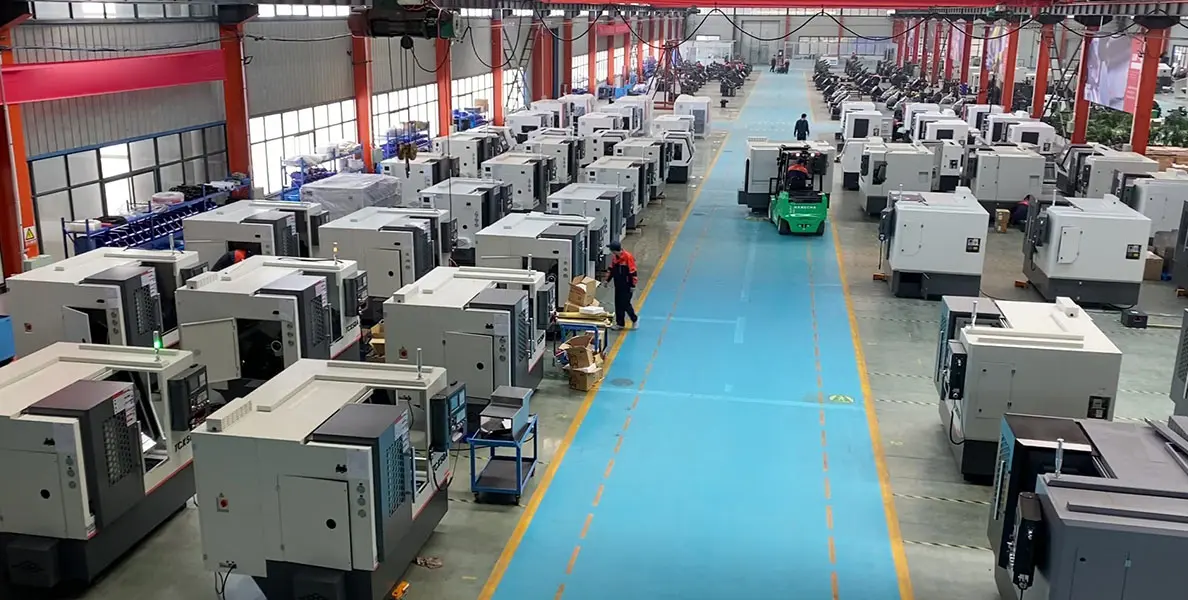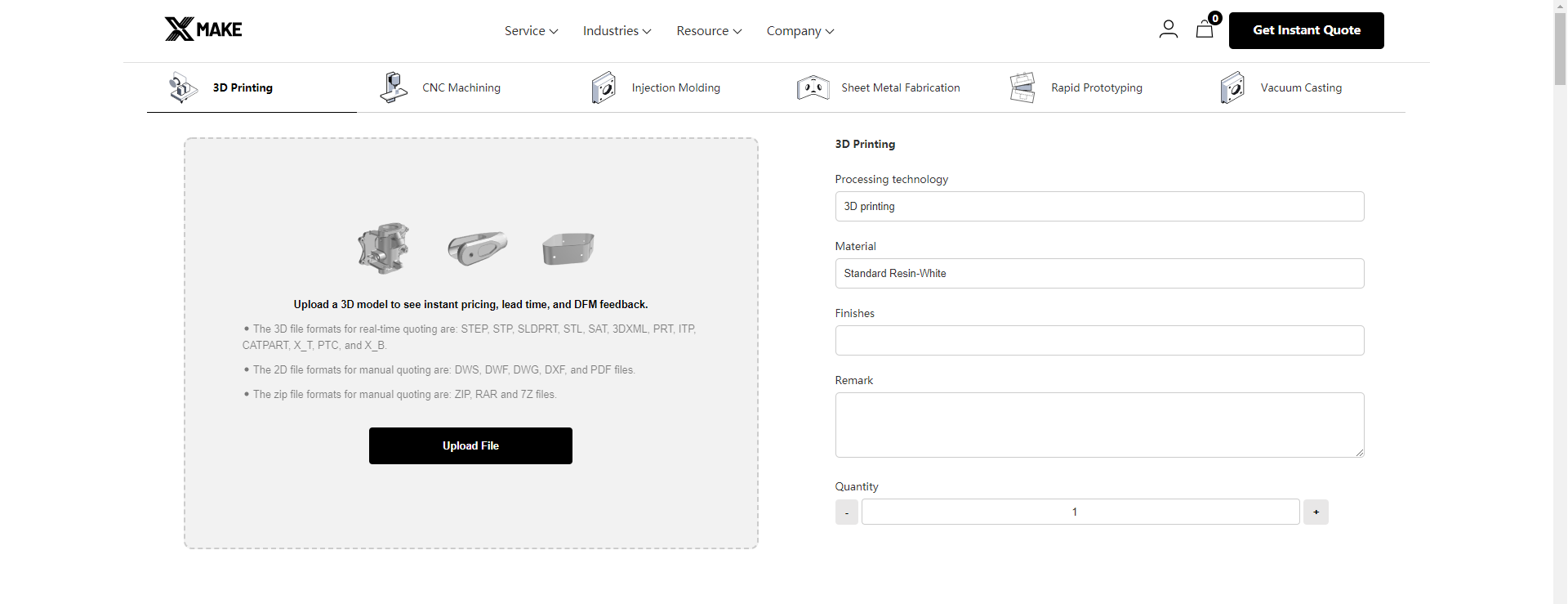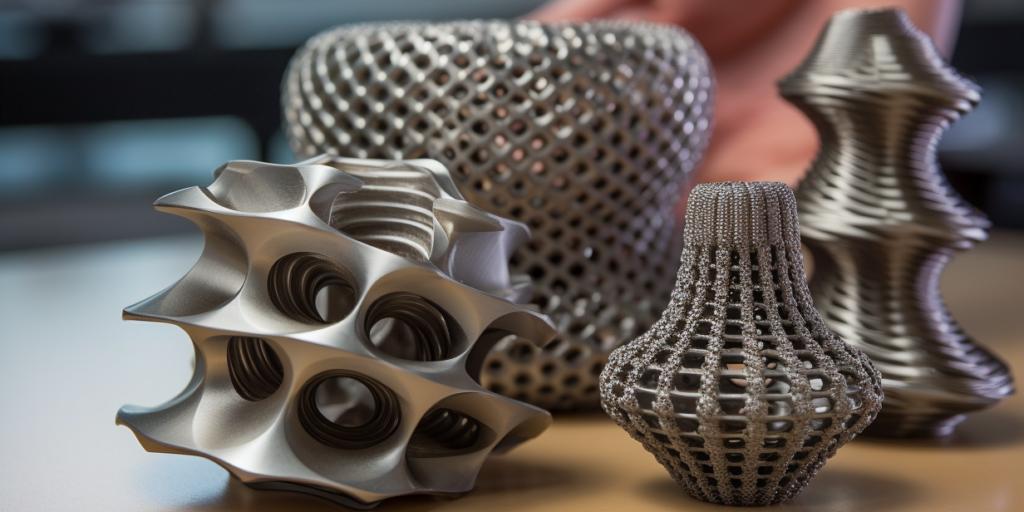
Struggling to find a CNC machining service that delivers precision, reliability, and on-time results? You’re not alone. Choosing the wrong provider can lead to costly delays, flawed parts, or even project failure.
Your project’s success hinges on factors like equipment quality, CNC provider experience, and quality assurance CNC standards. The right CNC machining services make all the difference. Let’s discuss further!
Part 1: Define Your Requirements
Before evaluating any CNC vendor, it’s critical to define your own project needs with clarity. A well-prepared RFQ (Request for Quote) that includes complete technical specs will not only result in more accurate pricing but will also help you filter out suppliers who can’t meet your standards.
Ask yourself the following:
- What are your tolerance requirements?
Not all vendors are equipped to handle ±0.01 mm tolerances, especially across multiple setups or complex geometries. If precision is critical, make that clear upfront.
- Which materials are you working with?
CNC machining performance varies depending on material — aluminum, stainless steel, titanium, plastics, and not all providers are equally experienced with each. Surface finish expectations and post-processing (e.g., anodizing, bead blasting) should also be specified.
- Are you prototyping or moving toward production?
A shop well-suited for quick prototypes may not have the processes or QC standards required for repeatable production. Conversely, a production-focused supplier might not be cost-effective for one-offs. Define your immediate and future needs clearly.
- How complex is the part?
Multi-axis machining, deep cavities, thin walls, or tight perpendicularity often require specialized setups or custom tooling. Sharing a 3D model early can help vendors assess feasibility and suggest improvements.
When your internal requirements are vague, supplier selection becomes guesswork. A clearly defined spec is the foundation of meaningful vendor evaluation — and ultimately, successful outcomes.
Part 2: Why CNC Provider Experience Matters?
When it comes to CNC machining, technical capability alone isn’t enough. Two vendors might run the same type of cnc machines and offer similar services, but their real-world experience often determines whether your project runs smoothly or hits unexpected roadblocks.
Experience doesn’t just mean years in business, it’s about relevant, applicable knowledge that translates into better decisions, better parts, and fewer delays.
Application-Specific Expertise
A provider with five years of experience machining aerospace brackets will be far more valuable to an aerospace client than one with twenty years of experience making general-purpose components. The same goes for medical, robotics, automotive, or industrial parts.
Look for signs of domain expertise:
- Do they understand the functional role of your part?
- Have they worked with similar tolerances, materials, or regulatory standards?
- Can they anticipate common failure points or machining challenges?
Vendors who “get it” won’t just run your part — they’ll improve it. That’s the value of experience.
Collaboration
An experienced CNC shop doesn’t just machine to spec — they partner with you during early-stage reviews. This often includes:
- Highlighting risky design features that might drive up cost or reduce reliability
- Suggesting small geometry changes to improve machinability
- Offering guidance on material selection or tolerance stacking
These contributions can dramatically improve outcomes, particularly in prototype-to-production transitions.
If a provider only quotes what’s given without any technical feedback, that’s often a red flag, especially for more complex parts.
Problem-Solving
Mistakes happen. Revisions happen. Ship dates move. An experienced provider knows how to respond when things don’t go perfectly. They’ve built systems for version control, change order management, and recovery planning, and they communicate clearly under pressure.
That kind of operational maturity is hard to measure from a website but easy to recognize in conversation. Ask them about past challenges they’ve handled. Their answers will tell you a lot.
Engineering Support
Not all CNC vendors provide engineering insight, but those who do can save you significant time and cost. Experienced providers often offer:
- DFM (Design for Manufacturability) consultation, pointing out geometry or tolerance issues before machining begins.
- Material advice based on mechanical needs, cost efficiency, and finish requirements.
- Pre-production reviews to flag challenges and align expectations.
For example, a small chamfer instead of a fillet, or a slightly looser tolerance on a non-critical face, could reduce setup time and machining cost by 20–30%. That kind of feedback is only possible when the vendor takes the time to understand your part’s purpose, not just its CAD file from CAD software.
If a supplier quotes your design without offering any feedback — even when it’s obviously over-toleranced or overcomplicated — that’s usually a sign they’re just order-takers, not partners.
Part 3: How to Evaluate Quality Assurance?
Quality assurance is more than a checklist — it’s a system of controls, habits, and accountability that ensures your parts arrive within spec, on time, and ready for use. To evaluate a CNC vendor’s QA practices, start by looking at certifications, then dig deeper into their actual processes.
Key Certifications to Look For
Certifications are the foundation of quality systems — they don’t guarantee perfection, but they indicate that a shop follows structured procedures.
Here are the most common ones to know:
- ISO 9001 – A general quality management standard. It ensures the shop documents and follows repeatable processes, but does not guarantee precision machining expertise.
- AS9100 – Required for aerospace suppliers. Builds on ISO 9001 with stricter process control, traceability, and risk management.
- ISO 13485 – For medical device manufacturing. Focuses heavily on documentation, regulatory compliance, and hygiene protocols.
- IATF 16949 – Automotive-specific standard, emphasizing production consistency and continuous improvement.
If your project is in a regulated industry, these certifications are often non-negotiable. For general industrial work, ISO 9001 is typically sufficient — but should still be backed by real practices, not just paperwork.
In-Process Practices
Certifications are important, but what matters more is how quality is managed day to day. Ask whether the shop performs first article inspections (FAI), provides dimensional reports, and uses calibrated tools like CMMs or micrometers. These are signs that inspection isn’t just for show — it’s built into their workflow.
Reliable CNC vendors don’t just check parts at the end; they monitor quality throughout production. Look for mid-run sampling, setup checks, and clear revision control on files. Material traceability and inspection records are also essential, especially for regulated industries or scaling to production.
Part 4: CNC Machining Lead Times
When evaluating CNC suppliers, price is often the first thing buyers compare, but lead time is what affects your project schedule, production flow, and time-to-market. Choosing the right partner means understanding how their capabilities and workflow align with your delivery needs.
Why Lead Time Is About More Than Speed?
A fast lead time on paper doesn’t mean much if the shop lacks the resources to deliver consistently. Many delays come not from machine runtime, but from poor scheduling, lack of material readiness, or unclear communication.
A supplier who understands your part, responds to design changes quickly, and flags issues early will often deliver faster, even if their quote isn’t the lowest.
How Capabilities Affect Turnaround?
CNC lead times depend heavily on the shop’s capabilities and specialization. For example:
- CNC Milling is ideal for complex 3D parts, flat surfaces, and angular features. 3-axis shops can handle most jobs, but 4- or 5-axis machines reduce setups and speed up production.
- CNC Turning excels at round or cylindrical parts. Lathes with live tooling can perform drilling and milling in the same setup — a big time saver.
Multi-axis or Swiss-type machining is often necessary for high-precision, small, or intricate components, particularly in medical and aerospace.
Flexibility Matters
Projects often evolve: drawings change, priorities shift, or volumes increase. A vendor that’s inflexible or overbooked can’t adapt quickly, and you’ll feel it in lead times. Look for signs of agility: Do they offer quick-turn capacity? Can they prioritize urgent orders? Do they communicate when a timeline needs to shift?
A slightly higher quote from a vendor who meets deadlines, supports changes, and scales with you is often a better investment than a low-cost supplier who creates bottlenecks.
Part 5: CNC Customer Service
In CNC machining, customer service isn’t about polite emails — it’s about how well a supplier supports your project at every stage, especially when timelines shift or technical issues arise. Good customer service ensures you’re not left guessing when things change or go wrong.
Reliable CNC machining service providers establish clear communication channels from the first contact. They provide detailed quotes with transparent pricing and realistic timelines. Look for dedicated project managers who respond within 24 hours to technical inquiries.
Responsiveness
Fast, clear communication during the quoting stage is often a preview of how the shop operates later.
- Do they ask clarifying questions about your design?
- Do they raise red flags proactively?
A vendor that replies quickly but lacks technical engagement may cause delays once production begins.
During production, communication becomes even more important. Look for suppliers who provide updates, flag potential delays early, and are transparent about lead times. If a shop goes silent after receiving your order, that’s a risk.
Post-Production Support
True customer service continues after parts are delivered. If there’s an issue — a tolerance deviation, a missing certificate, or an unexpected surface finish — how does the supplier respond? Will they remake the part? Will they investigate root causes?
Shops with strong service usually assign a dedicated point of contact, maintain clear records of each order, and treat post-delivery issues with urgency, not excuses. In the long run, this level of support is just as important as machining capability.
Conclusion
Choosing the right CNC machining partner isn’t just a technical decision — it’s a strategic one. The most reliable CNC services are those that align with your project’s specific needs, not just your budget.
Rather than chasing the lowest price, focus on finding a provider who delivers consistent quality, understands your industry, and communicates clearly at every stage. That’s the difference between a vendor and a long-term partner.
If you’re ready to move forward, the best online CNC services today make it easy to start your CNC online quote — often with instant pricing, technical review, and real-time lead time estimates. It’s a simple step, but one that sets the foundation for a smoother, faster, and more dependable production experience.
FAQs
1. What should I include when requesting a CNC machining quote?
For an accurate and timely quote, include a 3D CAD model (STL, STEP or IGES), material requirements, surface finish specs, and quantity. The more technical details you provide upfront, the more reliable and precise the quote will be.
2. How long does CNC machining typically take?
Lead times vary based on part complexity, material availability, order volume, and shop capacity. Simple prototypes may ship in 2–5 days, while production orders can take 1–3 weeks. Choosing a vendor with quick-turn capability and flexible scheduling helps reduce downtime.
3. How do I know if a CNC supplier is reliable?
Look beyond their website. Ask about in-house quality control, certifications (like ISO 9001 or AS9100), customer references, and how they handle revisions or delays. A reliable CNC partner will offer transparent communication, technical support, and consistent delivery performance.







